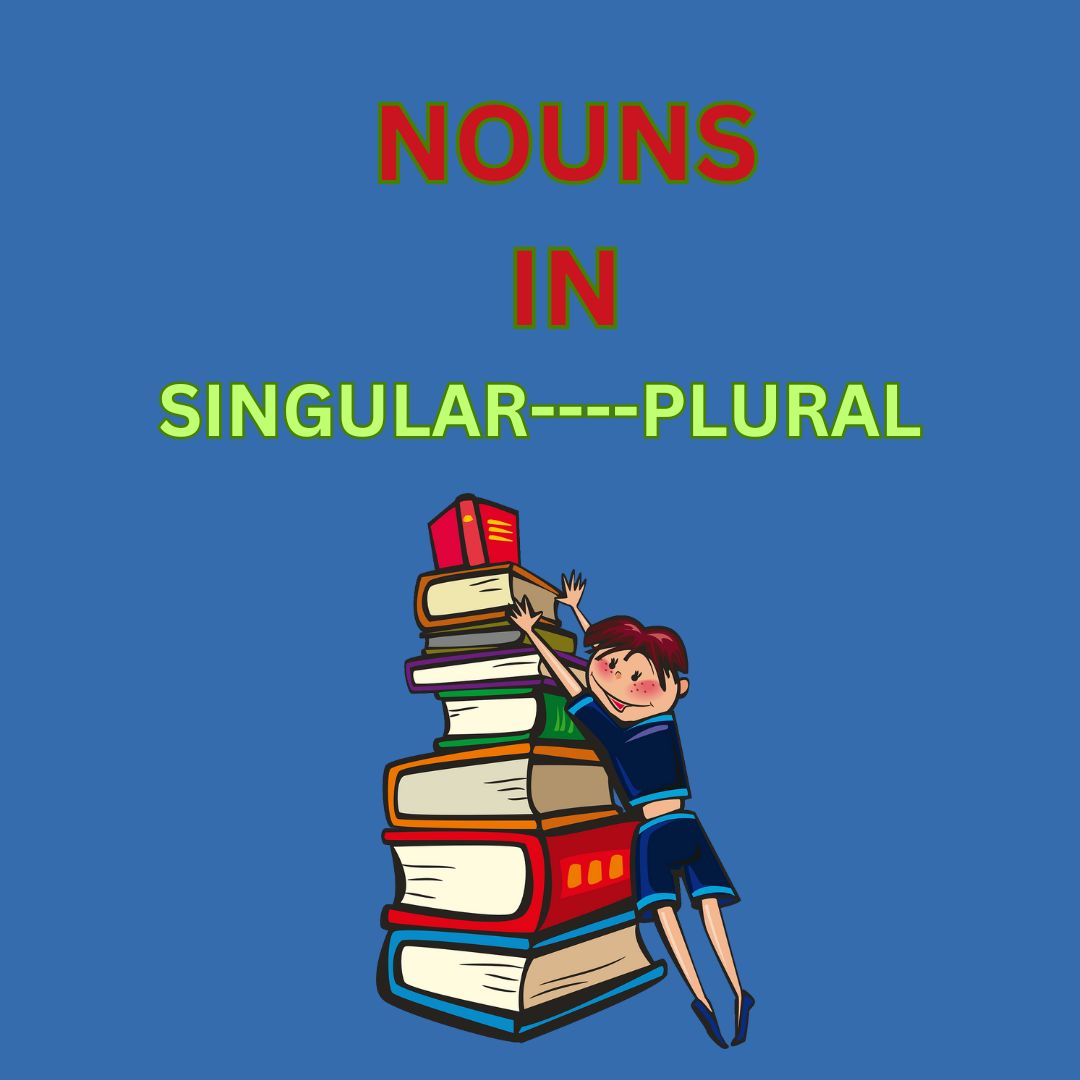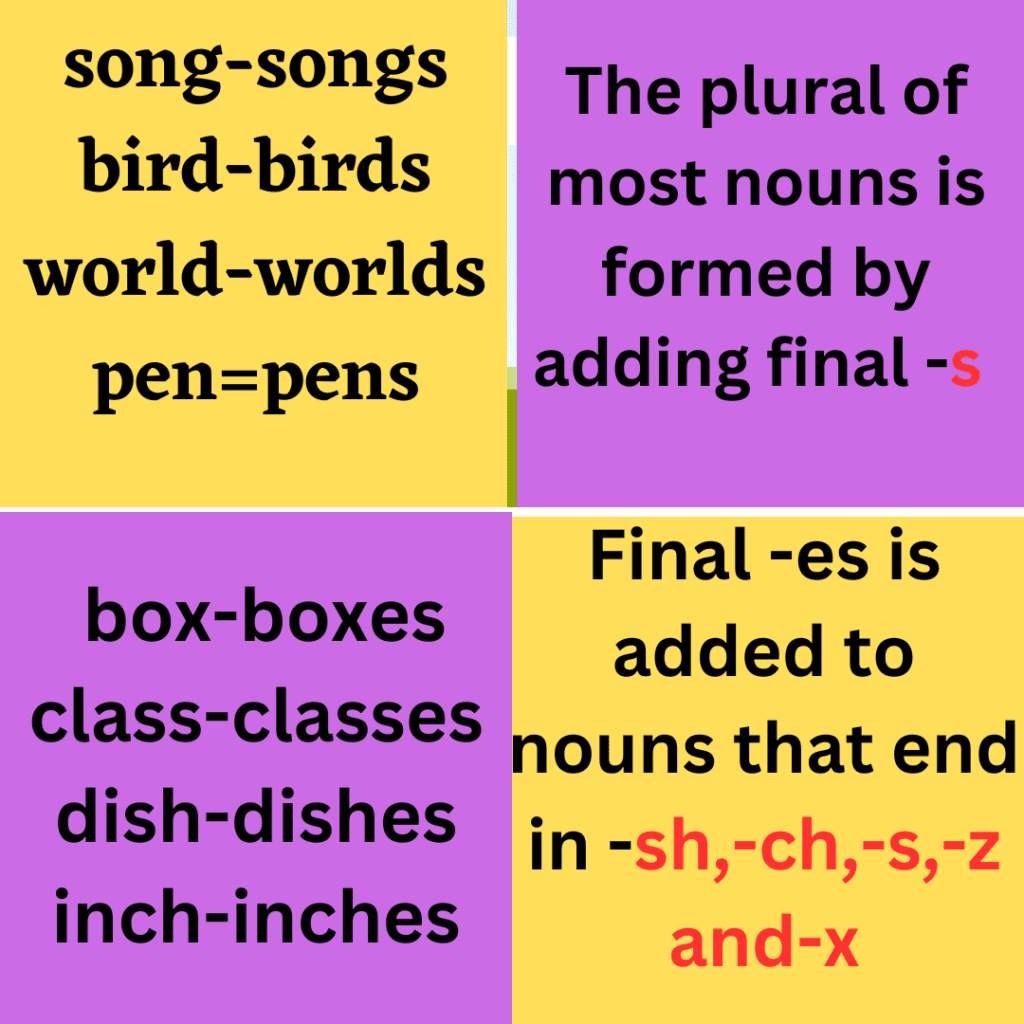Singular and Plural Nouns

Singular and Plural Nouns
The Noun has singular and plural forms. Nouns in singular form use indefinite article a/an. It means we can count them.
a train, two trains an elephant, two elephants
a tree, three trees an eagle; five eagles
To make plural form of most nouns, a final -s must be added. These are regular nouns.
a cup – cups
a hat—hats
If a noun ends with a consonant y, make plural by changing y to i+ and adding + es.
baby – babi + es = babies
city: citi + es = cities
But: boy + s = boys
key + s = keys
turkey + s = turkeys
toy + s = toys
If a noun ends with a consonant f + silent e, in plural form, change f to v + add + es.
wife: wiv + es = wives
wolf: wolv + es = wolves
knife: kniv + es = knives
But: chiefs
handkerchief – handkerchiefs
roof – roofs
safe – safes
The word wharf has two plural forms: wharfs and wharves
The Nouns with final suffixes s, ss, sh, ch, x, and z make plural
form by adding –es inch – inches box – boxes

If the end of the noun is –o, add –es to make it plural:
potato + es = potatoes
tomato + es = tomatoes
cargo + es = cargoes
hero + es = heroes
But: photos
piano – pianos
Other nouns take plural forms in different ways.
These nouns are irregular.
Singular Plural
a child children
a foot feet
a man men
a woman women
a tooth teeth
a sheep sheep
a deer deer
a fish fish
an ox 0xen
a goose geese
a person people
a life lives
a leaf leaves
a mouse mice
Some nouns with Greek and Latin origin form plural form by adding s/es, others by another way
Singular Plural
analysis analyses
basis bases
matrix matrices (xes)
datum data
phenomenon phenomena
medium media
stratum strata
fungus fungi
bacterium bacteria
Fish and sheep are the nouns that form singular and plural by the same way:
A sheep is under the tree.
There are a lot of sheep in this farm.
This fish is golden.
He caught five fish.
The nouns dozen and score have the same forms for singular and plural when they are preceded by numerals:
two dozen of rooms (a dozen is equal to 24)
three score years ago (a score is equal to 20)
But when dozen and score are used without numerals, they form plural by adding the final –s:
Pack the newspapers by the dozen, please.
Scores of students were there.
The Nouns gate, sledge, and watch have both singular and plural forms:
Singular Plural
a gate, two gates
a sledge, some sledges
one watch, three watches
Nouns in Singular and Plural form
What is a Noun? How to use it?